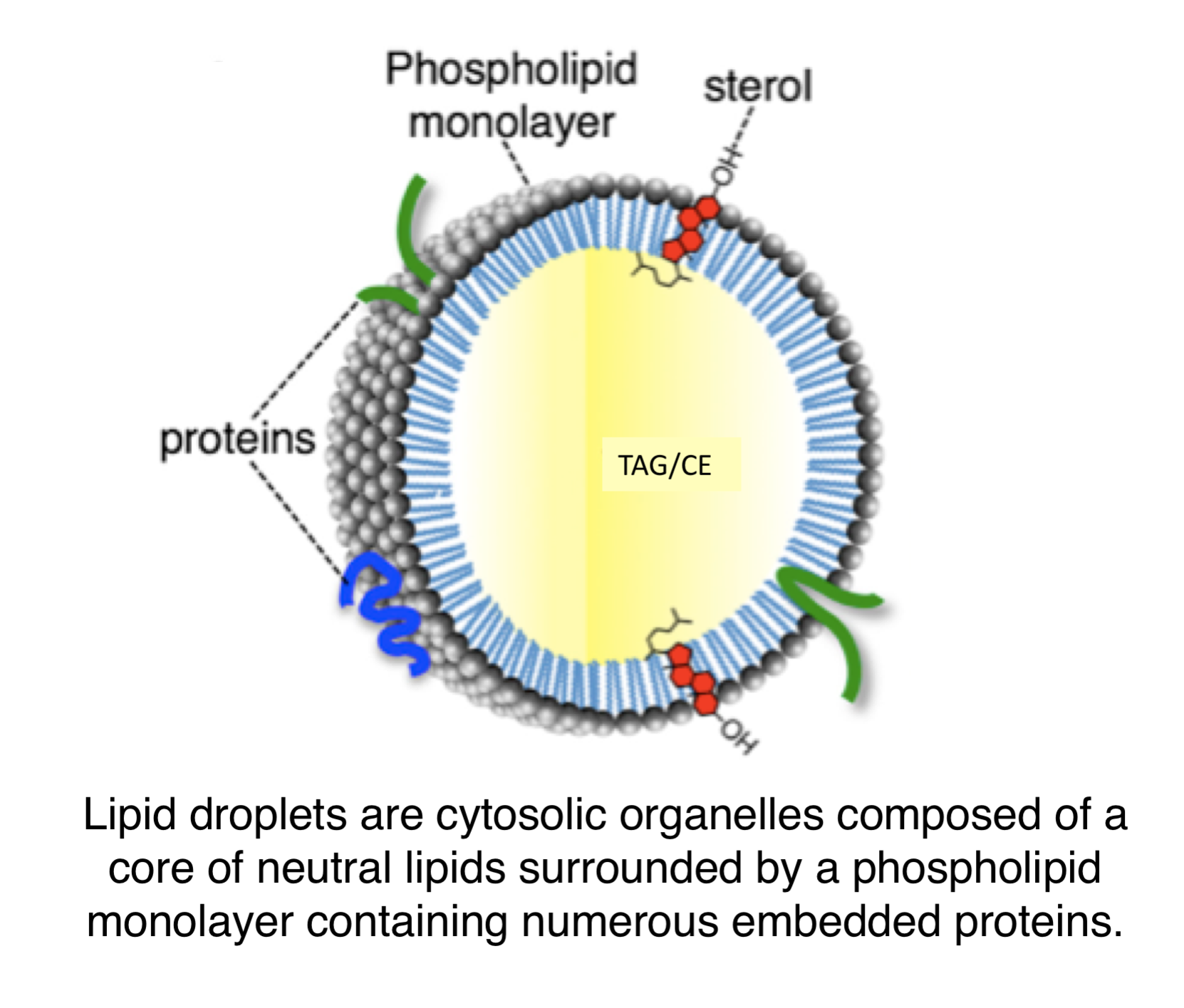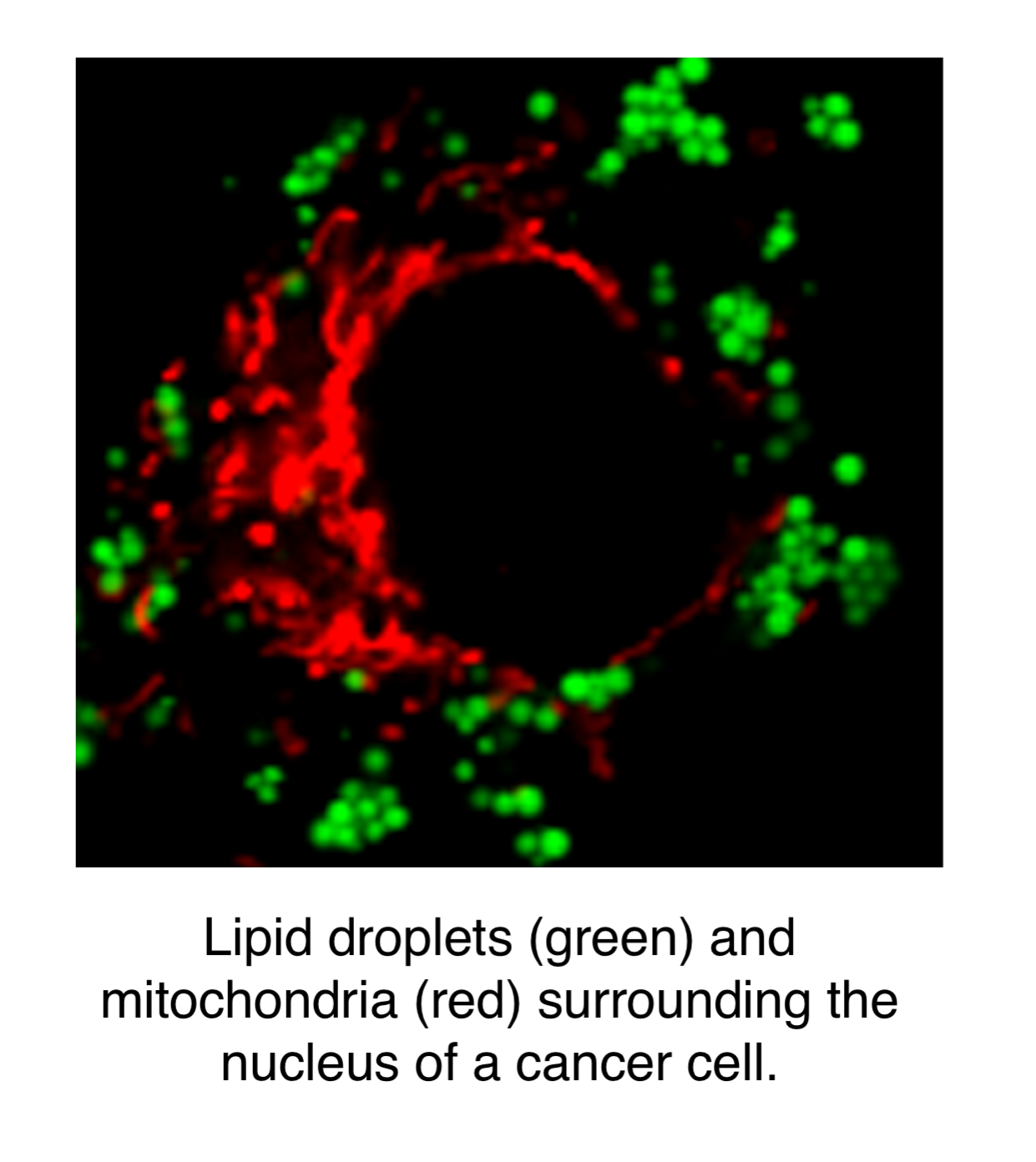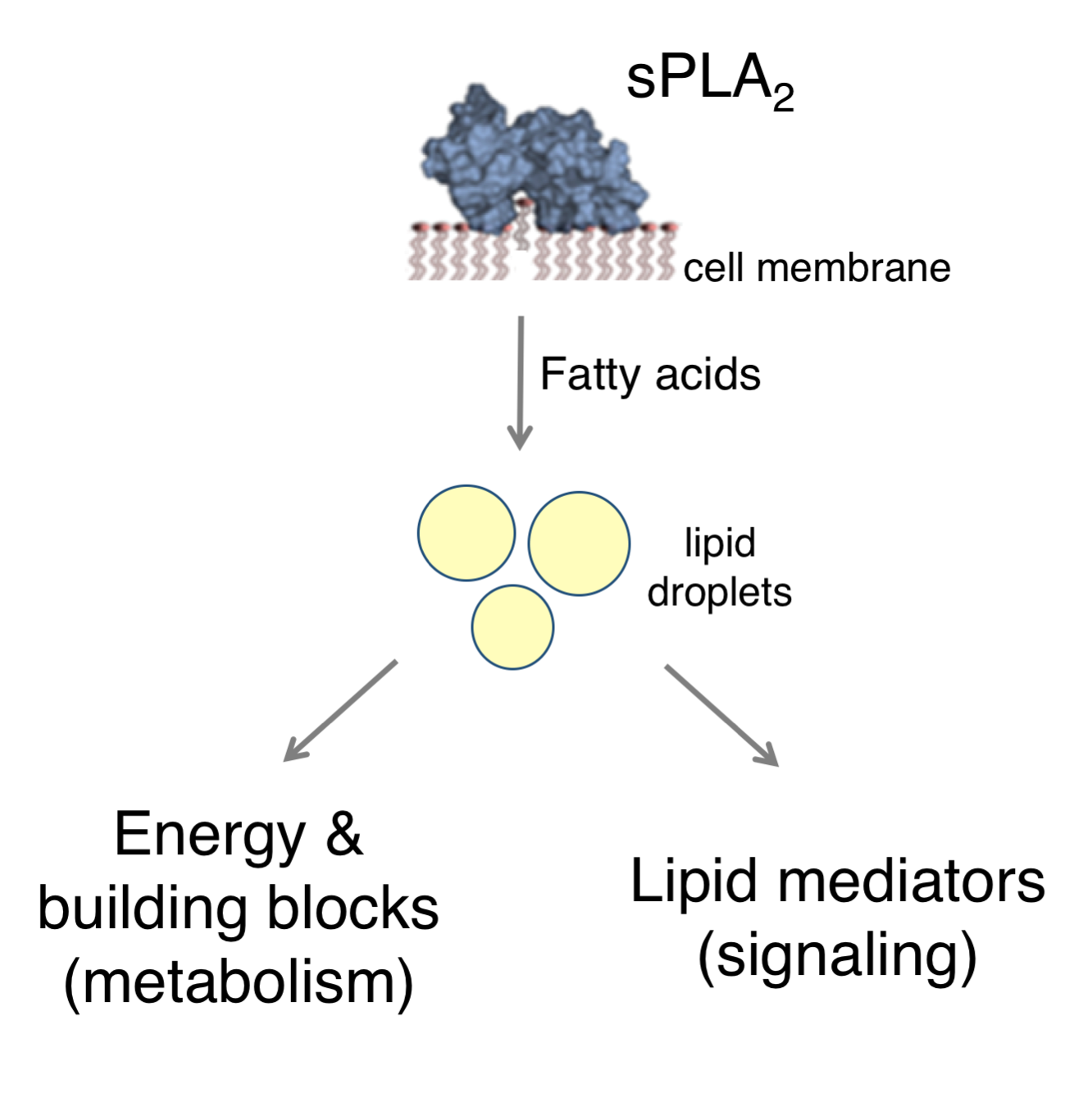Lipid Metabolism and Signalling
Fatty acids are crucial components of cell membranes, they provide energy and carbon building blocks for cell growth and they are the most efficient energy stores in our bodies. In the cell, fatty acids are stored as triglycerides (TAGs) and cholesterol esters (CEs) in newly recognized organelles called lipid droplets.
Excess fatty acids in our circulation are not stored only in fat tissue, but may also accumulate in muscle, liver, kidney, heart and the immune system. This so called ectopic lipid accumulation is characteristic of metabolic disorders, such as obesity and type 2 diabetes, but also of some cancers. Importantly, fatty acids also act as or are transformed into signalling molecules – lipid mediators, powerful messengers that alter many cellular processes, including inflammation.


Excess lipid accumulation may thus lead to chronic inflammation, which is characteristic of both metabolic diseases and cancer. Studying the emerging roles of lipid droplets in inflammatory signalling may provide new therapeutic opportunities for tackling these widespread diseases.
We are particularly interested in the roles of lipid droplets as cell signalling hubs that integrate metabolic (energy) and signalling (information) processes in cancer and metabolic diseases. Our primary focus are secreted phospholipase A2 (sPLA2) enzymes that release a mixture of products from cell membranes, including omega-3 and omega-6 polyunsaturated fatty acids (PUFAs).
sPLA2s stimulate lipid droplet formation in cancer and other cells and modulate lipid metabolism and cell signalling. PUFAs have shown beneficial effects in metabolic disorders and cancer and give rise to numerous lipid mediators, such as the pro-inflammatory and pro-tumorigenic prostaglandin E2 and the anti-inflammatory lipoxins and resolvins.
Our research focuses on studying the role of sPLA2s, PUFAs and lipid droplets in:
- cancer, to identify metabolic and signalling changes important for cell growth & proliferation, resistance to stress and inflammation;
- metabolic disorders, to identify the links between lipid droplet accumulation and fatty acid-derived inflammatory signalling.

⇒ Please contact Assist. Prof. Toni Petan for more information.